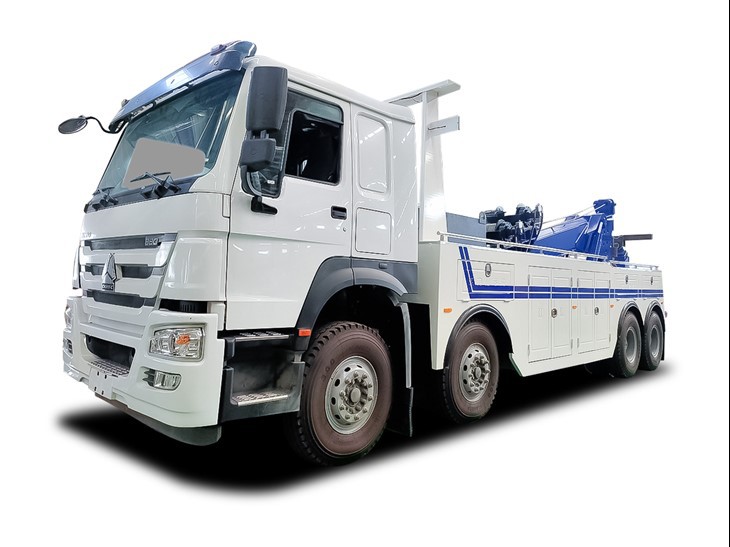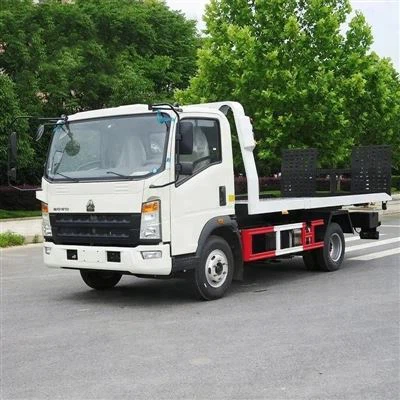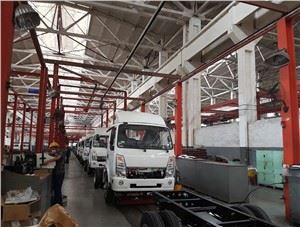Understanding Garbage Truck Compactors: Efficiency in Waste Management

Garbage truck compactors play a pivotal role in modern waste management systems, ensuring that waste is effectively and efficiently collected, compacted, and transported. This article delves into the intricacies of garbage truck compactors, exploring their types, functionality, advantages, maintenance, and much more.
What is a Garbage Truck Compactor?
A garbage truck compactor is a specialized vehicle designed to compress waste materials before transportation to landfills or recycling centers. The compaction process reduces the volume of waste, allowing for more efficient storage and transport, ultimately resulting in lower operational costs and environmental impact.

Types of Garbage Truck Compactors
Garbage truck compactors come in various types, each suited for specific waste management needs. The main types include:
1. Front-Load Compactors
Front-load compactors are designed for commercial waste collection. They feature a front-loading mechanism that allows waste bins to be lifted and emptied into the compactor’s hopper.
2. Rear-Load Compactors
Rear-load compactors are typical for residential waste collection. The compaction mechanism is located at the rear of the truck, allowing for easier loading from the back.
3. Side-Load Compactors
Side-load compactors are equipped with a side-loading mechanism. This design is ideal for narrow streets or areas with limited access.
How Garbage Truck Compactors Work
The internal mechanism of a garbage truck compactor includes several key components:
- Hopper: The open area where waste is loaded into the truck.
- Compaction Plate: A plate that moves back and forth to compact the waste within the hopper.
- Hydraulic System: The hydraulic system powers the compaction plate and controls the lifting of the truck’s loading mechanism.
As waste is collected, it is funneled into the hopper, where the compaction plate compresses it, reducing overall volume and maximizing the truck’s load capacity.
The Advantages of Using Garbage Truck Compactors
Utilizing garbage truck compactors offers numerous benefits:
1. Increased Efficiency
Compaction reduces the volume of waste by up to 70%, allowing for more waste to be transported in a single trip, thus reducing fuel costs and labor time.
2. Environmental Benefits
By decreasing the number of trips to landfills, compactors help lower greenhouse gas emissions and reduce the carbon footprint associated with waste management.
3. Improved Hygiene and Safety
Compacting waste minimizes odor and the risk of animal attraction, enhancing overall hygiene in waste collection.
4. Space Savings
Compact waste takes up less space in landfills, allowing for more efficient land use and longer landfill lifespan.
Key Features of Garbage Truck Compactors
When selecting a garbage truck compactor, consider the following features:
1. Compaction Ratio
The compaction ratio refers to the volume of waste reduced during the compaction process. Higher ratios indicate better performance.
2. Load Capacity
Understanding the truck’s load capacity is essential for ensuring optimal performance based on the volume of waste collected.
3. Durability and Material
Compactors are subjected to harsh conditions, so they should be made from robust materials to withstand wear and tear.
4. Control Systems
Modern compactors often have advanced control systems, including automated and remote controls for improved operational efficiency.
Maintenance of Garbage Truck Compactors
Regular maintenance is critical for ensuring the longevity and operational efficiency of garbage truck compactors. Key maintenance practices include:
1. Routine Inspections
Conduct regular inspections to identify wear and tear, particularly on the hydraulic system, compaction plate, and loading mechanisms.
2. Fluid Checks
Regularly check hydraulic fluid levels and replace fluids according to manufacturer specifications.
3. Cleaning
Keep the compaction area clean to prevent blockages and improve hygiene.
4. Component Replacement
Replace damaged or worn-out components promptly to avoid costly repairs down the line.
Cost Factors Associated with Garbage Truck Compactors
The overall cost of garbage truck compactors can vary significantly based on several factors:
| Factor | Description |
|---|---|
| Initial Purchase Price | The upfront cost of the compactor, which can range from $150,000 to $300,000 depending on the model and features. |
| Maintenance Costs | Ongoing maintenance expenses, including parts replacement and labor, which can range between $5,000 to $20,000 annually. |
| Fuel Consumption | Fuel efficiency is crucial, affecting operational costs. A typical garbage truck can consume between 8 to 12 miles per gallon. |
| Depreciation | Like most vehicles, garbage trucks depreciate over time, impacting their resale value. |
Practical Tips for Operating Garbage Truck Compactors
To maximize efficiency and safety when operating garbage truck compactors, consider these practical tips:
- Train Personnel: Ensure that all operators are properly trained to handle the compactor safely and effectively.
- Optimize Routes: Plan collection routes strategically to save time and fuel.
- Monitor Performance: Keep track of compaction ratios and load capacities to assess efficiency.
- Implement Safety Protocols: Establish clear protocols for safety to prevent accidents during operation.
Future Trends in Garbage Truck Compactors
The waste management industry is continuously evolving. Here are some future trends expected to impact garbage truck compactors:
1. Automation and Robotics

Advanced technologies, such as automation and robotics, are making their way into waste management, potentially enhancing the efficiency of garbage trucks.
2. Electric Garbage Trucks
With the push for sustainability, electric garbage trucks are becoming more viable, which could transform the industry and reduce emissions.
3. Smart Technology
Integration of smart technology, such as sensors and data analytics, can optimize routes and improve waste collection efficiency.
4. Focus on Recycling
As recycling efforts intensify, garbage truck compactors may evolve to accommodate separating and processing recyclable materials more efficiently.
Frequently Asked Questions (FAQs)
1. How much waste can a garbage truck compactor hold?
The capacity of a garbage truck compactor can vary, but they typically range from 15 to 30 cubic yards, depending on the model.
2. What is the average lifespan of a garbage truck compactor?
With proper maintenance, a garbage truck compactor can last anywhere from 10 to 15 years.

3. Are garbage truck compactors environmentally friendly?
Yes, they reduce the number of trips to landfills and help decrease emissions associated with waste transport.
4. How does the compaction process work?
The compaction process involves a moving plate that compresses the waste collected in the hopper, significantly reducing its volume.
5. What maintenance is required for garbage truck compactors?
Key maintenance includes routine inspections, fluid checks, cleaning, and timely replacement of worn components.
6. What types of waste can garbage truck compactors handle?
Garbage truck compactors are designed to handle general waste, recyclable materials, and organic waste, depending on their specifications.
